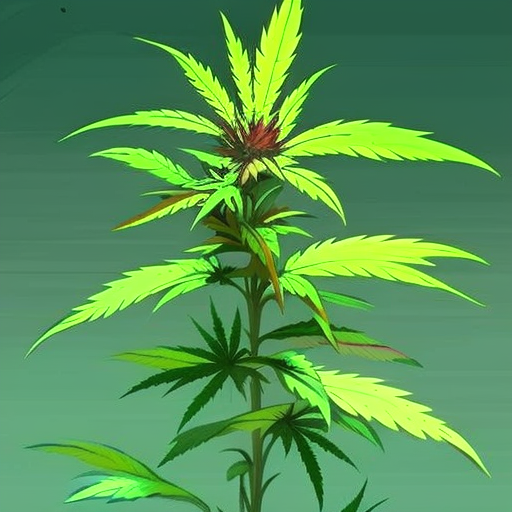
Yo, what’s up? My name is Dan and I’m here to talk about how cannabis affects bipolar disorder. You may have heard that a lot of peeps with bipolar disorder use weed, but it’s only recently that scientists have started to explore whether it can actually be used as a treatment for the illness.
Bipolar disorder is a mental health condition that can come in four different types. It’s also known as manic-depressive illness because it involves periods of high energy and ecstasy (mania) followed by periods of low mood, fatigue, and hopelessness (depression). Bipolar I disorder is the most severe type, where patients experience sustained periods of mania and depressive episodes. Bipolar II is mainly characterized by extended depressive episodes. Cyclothymia, the third category, is characterized by sustained periods of hypomanic and depressive behaviors that don’t necessarily reach the heights of full manic or depressive episodes. And the fourth type includes all other specified and unspecified varieties of this disease.
As cannabis becomes more widely recognized for its medical benefits, researchers are starting to look into how cannabinoids interact with bipolar disorder. However, because of its illicit nature and historical connotations as being devoid of medical benefit, opinions on its effects have been mixed.
There have been some preliminary studies on cannabis use for bipolar disorder, but most of them were conducted on relatively few participants. A recent study from Lancaster University in the UK looked at 24 patients with bipolar disorder who used cannabis at least three times a week. They recorded their experiences over six days using the experience sampling method (ESM) in a diary. Ultimately, the findings were inconclusive, showing that while some patients experienced increased manic and depressive symptoms with cannabis use, most patients enjoyed its positive effects and used it more for enjoyment than as medicine. However, it’s important to note that this study had a small sample size and lacked a control group, making it difficult to assess broader trends among many patients.
When performing studies on cannabis use for bipolar disorder treatment, researchers must consider differences in consumption methods. Depending on the type of cannabis consumed, scientific findings may be skewed by errors in consistency from study to study. For instance, bipolar patients who smoke cannabis concentrates with extremely high THC levels are likely to experience more adverse mood responses than those smoking CBD-rich strains of cannabis flower. THC is known to incite acute anxiety and paranoia in some consumers, while CBD can mediate negative psychotropic symptoms.
There is no evidence that cannabis use causes chronic brain disorders or mental illness like bipolar disorder. In bipolar patients, the effects of cannabis depend on the variety of the illness as well as the patient’s smoking habits, height, weight, among other factors.
Researchers who argue that cannabis is beneficial in treating bipolar disorder focus on the effects of cannabinoids on the human endocannabinoid system. When consuming cannabis, cannabinoids such as THC bind to endocannabinoid receptors known as CB1 and CB2 in different parts of the body and can potentially encourage mood-stabilizing effects. A study from the University of Oslo in Norway tested 133 bipolar patients on the effects of cannabis on neurocognitive functioning in 2010. The results were encouraging but require additional research before they can be effectively applied.
Cannabis use is higher in bipolar patients than average because they use it to alleviate depression or come down from a manic episode. While some anecdotal studies have followed patients whose mania was culled by the sedative effects of CBD and THC, others use it during depressive periods to experience uplifting sensations of euphoria.
The consensus is that there isn’t enough compelling research to definitively conclude whether or not cannabis can effectively treat bipolar patients. While it has been shown to spur symptoms of anxiety and mania in some individuals, many patients use it not as medication but for their personal enjoyment when they’re not experiencing an episode. Cannabis offers a wide range of medical implications and could very well be one key to natural mental healthcare in the near future.


Man, I been wonderin the same thing. It seem like it could go either way, help some folks chill out or make things worse. Anybody got experience with this?
Ayo, I feel like weed be playin games with them moods. Sometimes it chill but other times it make things worse. Gotta be careful how you use it if you got bipolar. Know yo limits, ya know?
Ayo, I feel like weed can hit different for folks with bipolar. Sometimes it chill you out, but other times it can make things worse. It all depend on the person and how they be feelin. Gotta be careful with that.
Yo, I feel like weed can really mess with the mood swings. Sometimes it be chillin but other times it just make things worse. Gotta be careful how it affect ya mind, ya know?